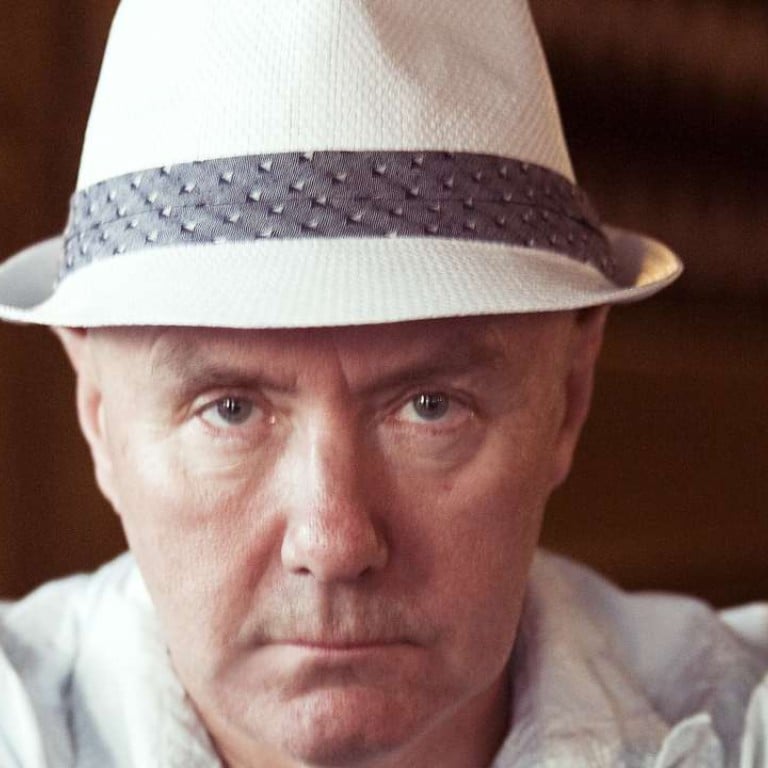
Book review: The Blade Artist - Irvine Welsh’s Begbie a shadow of his former self
The Blade Artist doesn’t work as detective fiction, a horror novel or social realism. Worse, the Trainspotting character has lost his tripwire psychology and become a pulpit for Welsh’s cynicism

by Irvine Welsh
Jonathan Cape
2 stars
At the end of Trainspotting, the characters’ lives seemed mapped out until death – apart from Mark Renton, who gave fate and his friends the last-minute slip by stealing the proceeds of a drug deal and escaping to Amsterdam. But everyone else’s doom looked fixed. Thinking about psycho hardman Francis Begbie’s newborn son, Michael, Renton could see the family’s future clearly: “That kid’s name wis doon fae HM Prison Saughton when it was still in [Begbie’s girlfriend] June’s womb, as sure as the foetus of a rich bastard is Eton-bound. While this process is going on, daddy Franco will be whair he is now: the boozer.”
But that certainty didn’t stop Welsh from returning to his characters, first in Trainspotting sequel Porno, then in prequel Skagboys . And now there’s The Blade Artist: the return of Begbie, who is not in the boozer or even called Begbie any more. Reformed and rechristened, he has become Jim Francis, an artist living in California with a beautiful wife and two doted-on daughters. Although at first he appears to have bucked Renton’s premonitions, Begbie’s salvation quickly starts to come unstuck – first when his California family is threatened, and then when he learns that his younger son, Sean, has been murdered in Edinburgh.

So it’s little surprise when Begbie starts to unleash the old ultraviolence. Back in Edinburgh, he turns gumshoe, applying his particular skills to the question of who killed Sean – although why he bothers is never convincingly explained, as he certainly doesn’t love his son. In fact, he cares so little about his children in Edinburgh that he finds himself sympathising with the police indifference to Sean’s murder. “You always bet on the sleek thoroughbred rather than the Clydesdale,” he thinks, comparing his two families. “If he differentiates his own offspring in this manner, how can he blame the polis for their lack of interest.”
Actually Begbie does a lot of thinking, and that’s a problem. Begbie, whose first words in Trainspotting were “Loosen up fir f*** sakes!”, has acquired the internal monologue of a moral philosopher. Welsh has never been over-scrupulous about having his characters speak for him, but it’s disconcerting when he turns Begbie into a pulpit and starts delivering such unlikely lines as: “The truth is that we’ve moved beyond democracy, universality and equality in the eyes of the law and, de facto, embraced a hierarchical, elitist world view.”
It’s not just that the characterisation is unconvincing. It’s a dereliction of everything that made Begbie such a nightmare and thrill ride.
It’s not just that the characterisation is unconvincing. It’s a dereliction of everything that made Begbie such a nightmare and thrill ride. The Begbie of Trainspotting terrorises because his capacity to surrender all self-control in acts of sudden, orgiastic violence forces everyone around him to be exquisitely responsive to his moods. Now, all the tripwire psychology has been chucked out and Begbie has become the Scottish cousin of Jigsaw from the Saw films – instead of pub-fight explosions, he stages exquisite dioramas of torture with heavy moral intent. If his thoughts on justice seem unsubtle, wait until you see what he does with a set of pulleys and some power tools.
Sometimes Welsh seems to be taunting himself about his own reputation: Begbie’s brother-in-law “wistfully intones” that he “always fancied writing the great Scottish novel”. Welsh’s politics are a mix of hopeful socialism and colonised cynicism – but in the end, and ruinously, it’s the cynicism that takes charge in The Blade Artist.
If Begbie’s savage sculptures are just pub brawls refined into clay, that doesn’t reflect very well on the revolutionary potential of Welsh’s own violent art. And if the politics misses the mark, so does everything else. As detective fiction it’s shakily assembled, as a horror novel it can’t outpace cinematic torture porn, and as social realism it routinely sends its own plausibility up in smoke. The Blade Artist is a long way from the vivacious amorality of Trainspotting, all the more obviously so because it’s stamping the same ground. Maybe Welsh – like Begbie – needs to make a break with his past.
The Guardian

